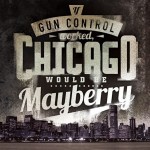 A little over three months after Brian Wrenn, two other law-abiding gun owners, and the Second Amendment Foundation asked a federal court to stop Washington, D.C. from enforcing one of its new handgun carry license laws, Senior United States District Court Judge Frederick J. Scullin, Jr., issued a significant legal decision granting their motion for apreliminary injunction.
A little over three months after Brian Wrenn, two other law-abiding gun owners, and the Second Amendment Foundation asked a federal court to stop Washington, D.C. from enforcing one of its new handgun carry license laws, Senior United States District Court Judge Frederick J. Scullin, Jr., issued a significant legal decision granting their motion for apreliminary injunction.
In response to Judge Scullin’s earlier decision in the case of Palmer v. D.C., which struck down D.C.’s total ban on carrying handguns outside the home, the District of Columbia passed new set of “may issue” license laws, including a “good cause”/”proper cause” requirement. Plaintiffs then filed suit, claiming that the “good cause” requirement was a violation of their Second Amendment right to keep and bear arms.
As explained in today’s decision, a party seeking a preliminary injunction must demonstrate “(1) a substantial likelihood of success on the merits, (2) that it would suffer irreparable injury if the injunction were not granted, (3) that an injunction would not substantially injure other interested parties, and (4) that the public interest would be furthered by the injunction.”
Below are relevant excerpts from the decision that explain the ultimate result:
1. Likelihood of success on the merits
The District of Columbia’s arbitrary “good reason”/”proper reason” requirement, however, goes far beyond establishing such reasonable restrictions. Rather, for all intents and purposes, this requirement makes it impossible for the overwhelming majority of law-abiding citizens to obtain licenses to carry handguns in public for self-defense, thereby depriving them of their Second Amendment right to bear arms. Accordingly, at this point in the litigation and based on the current record, the Court concludes that Plaintiffs have shown that they are likely to succeed on the merits of their claim that the District of Columbia’s “good reason”/”proper reason” requirement runs afoul of the Second Amendment.
2. Irreparable harm
This Court agrees with the Seventh Circuit’s reasoning in Ezell [v. City of Chicago] and finds that Plaintiffs have established that they are likely to succeed on the merits of their claim that the District of Columbia’s “good reason”/”proper reason” requirement was unconstitutional when enacted and continues to violate their Second Amendment right to bear arms for the purpose of self-defense every day that the District of Columbia continues to enforce it. Thus, the Court concludes that Plaintiffs have established that they will suffer irreparable harm if the Court does not grant their motion for a preliminary injunction.
3. Balance of the equities
As noted, Plaintiffs seek a very limited injunction. That is, they seek an injunction that only affects Defendants’ ability to enforce the District of Columbia’s “good reason”/”proper reason” requirement. They are not, as Defendants argue, seeking to prevent Defendants from enforcing the other provisions of the licensing mechanism nor do they seek to prevent Defendants from enacting and enforcing appropriate time, place and manner restrictions. Under these circumstances, the Court finds that the balance of the equities weighs in favor of granting Plaintiffs’ request for a preliminary injunction.
4. The public interest
For the same reasons that the Court found that the balance of equities weighs in favor of Plaintiffs, the Court also finds that the public interest weighs in favor of Plaintiffs.
In its conclusion, the Court:
ORDERS that Plaintiffs’ motion for a preliminary injunction is GRANTED; and the Court further
ORDERS that Defendants, their officers, agents, servants, employees, and all persons in active concert or participation with them who receive actual notice of the injunction are enjoined from enforcing the requirement of D.C. Code § 22-4506(a) that handgun carry license applicants have a “good reason to fear injury to his or her person or property or has any other proper reason for carrying a pistol,” including, but not limited to, the manner in which that requirement is defined by D.C. Code § 7-2509.11 and 24 D.C.M.R. §§ 2333.1, 2333.2, 2333.3, 2333.4, and 2334.1, against Plaintiffs Brian Wrenn, Joshua Akery, Tyler Whidby, and other members of Plaintiff Second Amendment Foundation, Inc.; and the Court further
ORDERS that Defendants, their officers, agents, servants, employees, and all persons inactive concert or participation with them who receive actual notice of the injunction, are enjoined from denying handgun carry licenses to applicants who meet the requirements of D.C. Code 22-4506(a) and all other current requirements for the possession and carrying of handguns under District of Columbia law; and the Court further
ORDERS that, pursuant to Rule 65(c) of the Federal Rules of Civil Procedure, Plaintiffs shall post security in the amount of $1,000.00; and the Court further
ORDERS that counsel shall appear for a conference with the Court on Tuesday, July 7, 2015, at 11:00 a.m. to discuss an expedited schedule for the resolution of this case.
The full decision and order can be read here.
Congratulations to the Second Amendment Foundation, plaintiffs, and civil rights attorney Alan Gura for another excellent victory.



